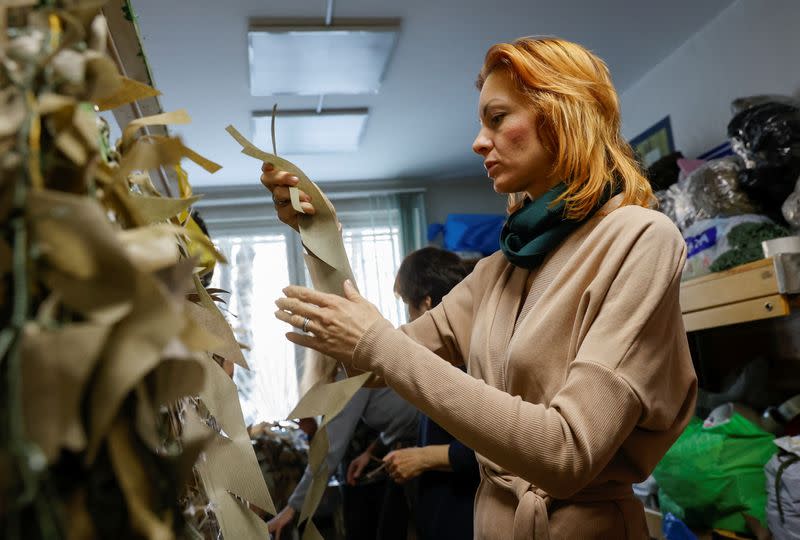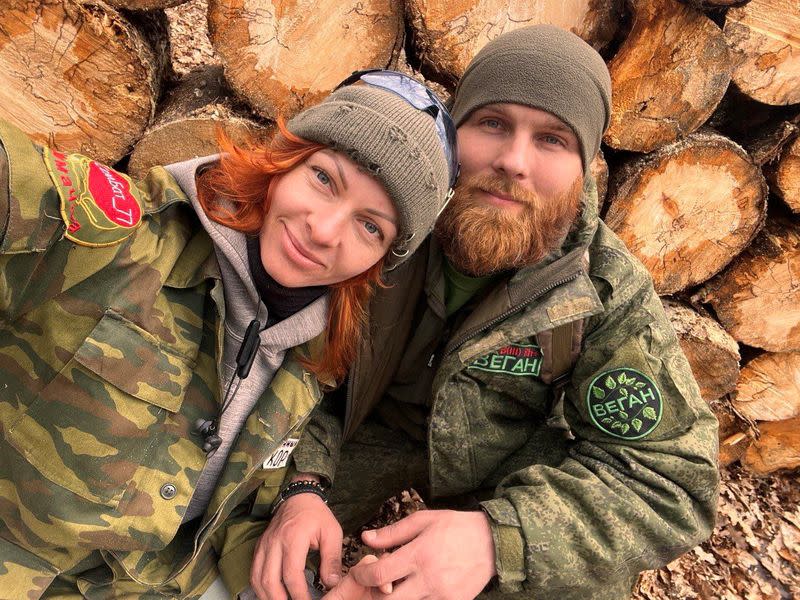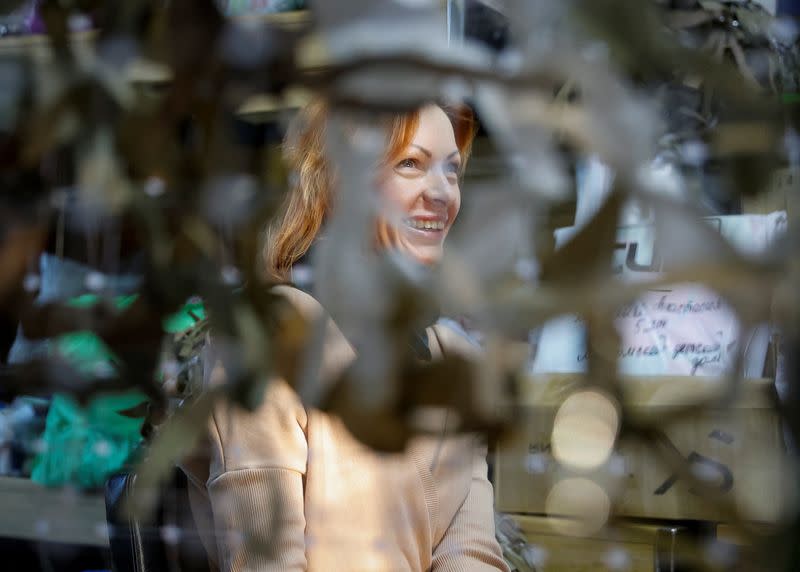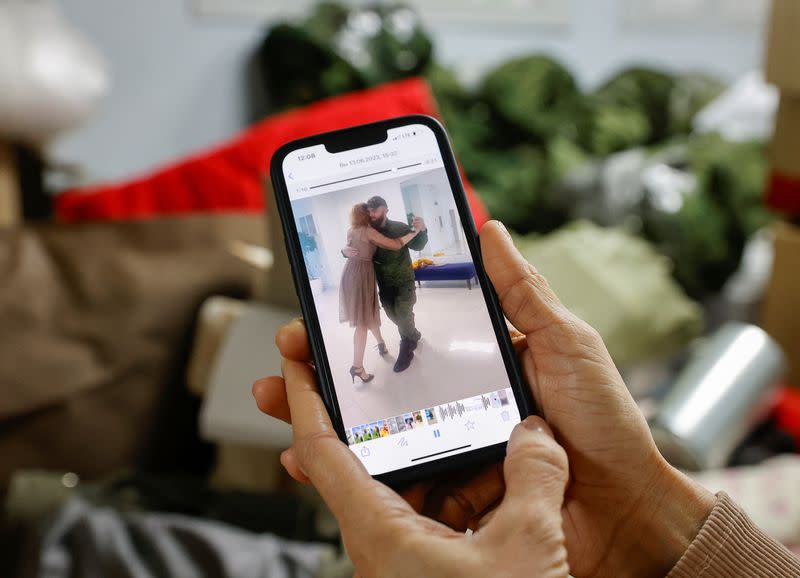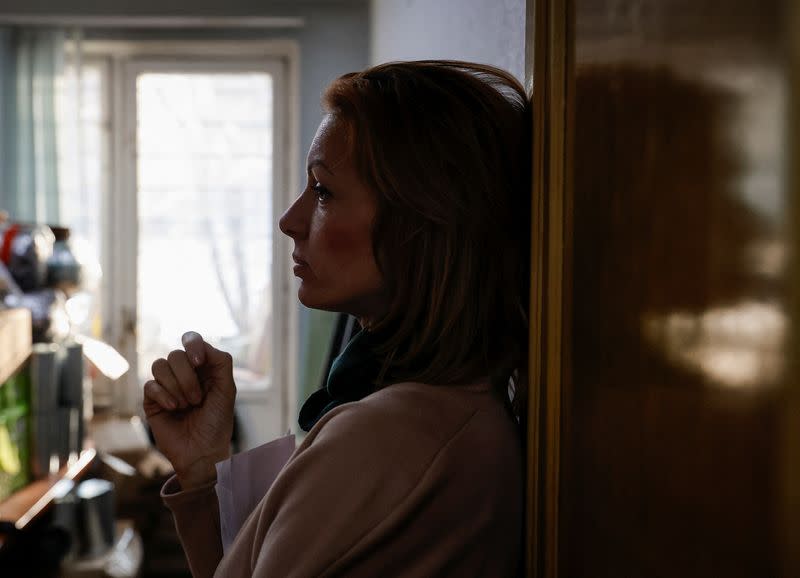'Russia is waking up': In Moscow, soldiers' wives make camouflage nets, minefield signs
- Oops!Something went wrong.Please try again later.
MOSCOW (Reuters) -Natalia Yermakova's husband, Alexander, has been fighting in Ukraine for over a year after responding to President Vladimir Putin's mobilisation call as a volunteer. Wounded in the leg, he was operated on and then sent back to the front.
A believer in what Russia calls its "special military operation" against Ukraine, Natalia is toiling as a volunteer in a "Family Battalion" in Moscow.
She is one of a group of around 40 mostly female relatives of mobilised men who thread camouflage netting, make signs to mark minefields, gather candles to be used in dug-outs, and put food parcels together in their free time.
As Putin positions himself to win a fifth presidential term in March, casting himself as the right man to lead a military campaign that the West says is a colonial-style war of aggression, it is people like Yermakova whom Putin is relying on to hold his support base together.
Her work takes place in an office belonging to the ruling United Russia party, which is adorned with Russia's red, blue and white flag and portraits of politicians such as Putin.
There are similar groups working around Moscow, she said.
The relatives take turns accompanying the deliveries they assemble - in a more-than-30-year-old van - to the Russian military in what Yermakova calls "the new territories" - Ukrainian land annexed by Russia.
"We really want to support them (the soldiers) morally and emotionally and send them a message...that what they are doing there is needed by people here," Yermakova told Reuters, while taking a break from threading a giant camouflage net.
Some wives of Russian soldiers fighting in Ukraine are demanding that their husbands, who they say have not been given enough breaks to spend time with their families, be demobilised and their places taken by others.
'THE WAY IT HAS TO BE'
But Yermakova, 37, does not share that concern. She was able to be with her own husband for some time after he spent several months recuperating in Moscow following an operation on his leg.
"If our government decides to act in such a way it means that's the way it has to be," said Yermakova.
"I believe that Russia is waking up, waking up from its sleep, and understands that it (the war) is not just happening for no reason and that there are compelling reasons for it."
That's a reference to the Kremlin's narrative that the conflict is part of a wider existential struggle for a fairer world order against what Putin sees as a decadent West bent on containing Russia.
The West brands Russia's actions in Ukraine as a brutal and unprovoked land grab, but this view finds little purchase among Russians like Yermakova. They accuse Ukraine of mistreating Russian speakers in the east since 2014 when a Russian-backed uprising erupted there. Kyiv denies the charge.
Yermakova said threading camouflage nets to help conceal trenches and to fit on soldiers' helmets was the volunteers' main task because it could help save their husbands' lives by keeping them safe from enemy drones.
She and others have also started sewing bandages and baking apple and cabbage pies to send to their men.
Yermakova said she had made several delivery runs, describing the area close to the frontline as "a different world".
Despite the grim nature of war, she said that she and her husband tried to bring a bit of normality to their lives by practising tango dancing, something they both loved, on the rare occasions they saw each other.
(Reporting by ReutersWriting by Andrew OsbornEditing by Gareth Jones and Leslie Adler)
